Apple Gets Legal and Congressional Boost in Privacy Fight Against U.S. Government
First a New York judge sided with Apple in its battle with the FBI over privacy. Then the technology company helped its case in Congress.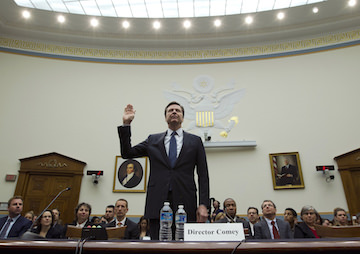
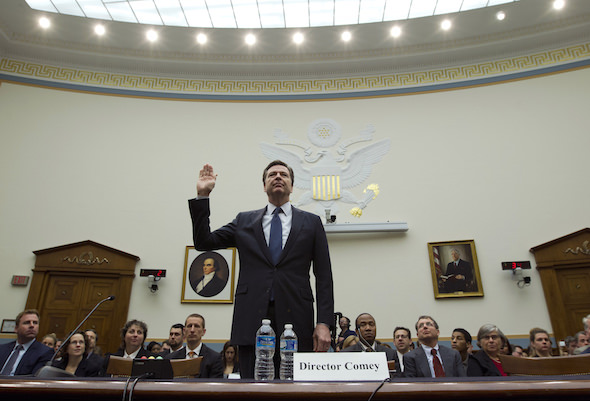
FBI Director James Comey testifying Tuesday before the House Judiciary Committee. (Jose Luis Magana / AP)
Score two for privacy defenders. In the ongoing legal battle between Apple and the FBI, the tech company followed up an important legal victory with a strong showing in Congress on Tuesday.
On Monday, U.S. Magistrate Judge James Orenstein, from New York’s Eastern District, denied the U.S. government’s request to force Apple to extract data from an iPhone in a criminal case against accused drug dealer Jun Feng.
Orenstein’s 50-page ruling centered on the All Writs Act and concluded that the 227-year-old law does not give the government the right to force Apple to open Feng’s locked iPhone 5. The ruling is significant because the All Writs Act—a law signed by George Washington in 1789 that gave broad powers to federal judges—is the same law the FBI is using to demand that Apple break the encryption on the iPhone of one of the San Bernardino attackers.
The decision helps Apple. From The Intercept:
Perhaps most devastating to the FBI’s case is Orenstein’s recognition that the purpose of the FBI’s request is not simply to obtain evidence in one particular case, but rather to grant the government broad, precedential authority to force Apple and other tech companies to take affirmative technological steps to cooperate with criminal investigations generally. That the FBI is seeking to establish broad precedent is a key argument made by Apple and its supporters in the San Bernardino case. To accept that the U.S. government has this power, ruled the court, is to vest law enforcement agencies with statutory authority that Congress itself never enacted.
On Tuesday, the FBI and Apple headed to Capitol Hill for “The Encryption Tightrope: Balancing Americans’ Security and Privacy” hearing. Bruce Sewell, Apple’s general counsel, and FBI Director James Comey testified. Comey admitted his agency made a mistake by locking the iPhone of Syed Rizwan Farook, one of the San Bernardino attackers. Sewell defended Apple’s argument that the government’s request poses a dangerous precedent for intrusion on citizen privacy and safety.
While Comey’s acknowledgment helps Apple’s case, many lawmakers remain torn over the debate.
“The big question for our country is how much privacy are we going to give up in the name of security,” Rep. Jason Chaffetz, R-Utah, told Comey, according to The New York Times. “And there’s no easy answer to that.”
To read the entire congressional testimony, click here.
—Posted by Eric Ortiz
Independent journalism is under threat and overshadowed by heavily funded mainstream media.
You can help level the playing field. Become a member.
Your tax-deductible contribution keeps us digging beneath the headlines to give you thought-provoking, investigative reporting and analysis that unearths what's really happening- without compromise.
Give today to support our courageous, independent journalists.
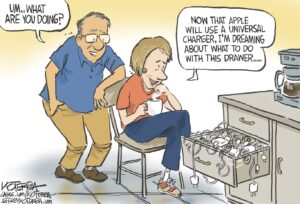
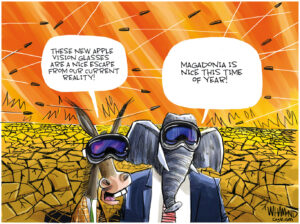

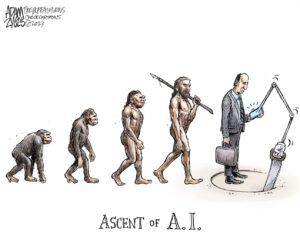


You need to be a supporter to comment.
There are currently no responses to this article.
Be the first to respond.